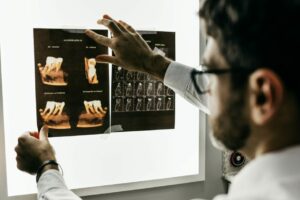Turkey was amongst the countries that responded quickly and aggressively to the COVID-19 outbreak and is recognised to have been effective in containing the spread of the virus. As of today, Turkey has reported 4,630 deaths for a population of 83 million. Turkey is now ready to revive its burgeoning medical tourism industry, as patients return to seeking planned medical treatments.
Turkey’s health system has supported a progressive medical tourism strategy, with strong support from the government. In 2018, Turkey started offering VAT exemptions to non-residents seeking medical treatment in Turkey for preventive medicine, diagnosis, care and rehabilitation services in health facilities accredited by the Health Ministry. The government also offered investment incentives in the form of subsidies, particularly in elderly care investments.
Medical tourism in Turkey is a billion dollar industry
Turkey has an excellent reputation for affordable hair transplants, cosmetic surgery, dental work, oncology and many other specialities. The Turkish medical tourism industry attracted revenues of nearly $1.5 billion in 2019, with an expectation for continued annual growth. The number of medical tourists for 2020 was forecast to be 1 million, but COVID-19 disrupted all medical travel plans and left the care of many patients receiving affordable care overseas in total disarray.
However, Health Minister Fahrettin Koca recently announced that they do not foresee a second wave as people adhere to wearing masks, social distancing, and limited social life. Still, they are actively monitoring for the going risk.
In his statement, Koca announced a gradual reopening of the medical tourism industry starting 20th May 2020, allowing patients from 31 countries to visit Turkey for a specific list of procedures.
Opposition parties and the Turkish Medical Association objected to the prospect of foreign patients in hospitals without a two-week isolation period. However, according to Reuters, President Recep Tayyip Erdoğan explained that two new Istanbul hospitals, one on the Anatolian side district of Sancaktepe, and the other built on the runways of the closed Atatürk Airport, would be used for medical tourism.
New health certification programme
The normalisation plan includes a new certification programme for healthcare facilities to accommodate medical tourists during the pandemic, with measures such as allocating a specific floor in each hospital for international patients, and testing of patients and attendants before allowing entry into the country.
Healthcare institutions will require pre-approval before receiving international patients. Patients will be entered into the patient chart of the International Health Services Inc (USHAS), the state agency set up to promote medical tourism, who will send permission letters to the relevant institutions if they meet the approval criteria.
If PCR testing is available in the country of origin, the patient and attendants are to be tested within 48 hours before travel and must bring their negative results with them. No more than two attendants per patient are allowed, and everyone will be screened at border control for a fee when entering Turkey. Patients will then be taken directly to their chosen hospital.
Patients can visit for specific healthcare treatments
Patients will only be allowed to enter for specific treatments. These include medical and surgical treatments across the following specialities:
- cardiology & cardiovascular surgery
- surgical oncology
- gynecologic oncology surgery
- medical oncology
- radiation oncology
- orthopaedics and trauma
- general surgery
- paediatric surgery
- urology
- eye diseases
- brain and nerve surgery
- haematology
- intensive care
- assisted-reproduction treatment applications
- organ transplantation and bone marrow transplantation.
Only citizens from countries with low risk of COVID-19 infections are allowed. The list of countries includes Albania, Algeria, Azerbaijan, Bahrain, Bosnia, Bulgaria, Djibouti, Georgia, Germany, Greece, Herzegovina, Iraq, Kazakhstan, Kosovo, Kuwait, Kyrgyzstan, Libya, Macedonia, Moldova, Oman, Pakistan, Qatar, Romania, Russia, Serbia, Somalia, the Netherlands, the Turkish Republic of Northern Cyprus, the UK, Turkmenistan, Ukraine, and Uzbekistan.















